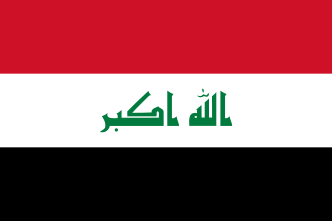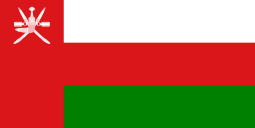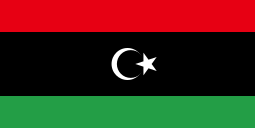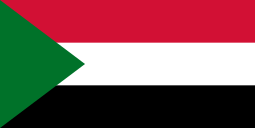2015 Kuwait mosque bombing
A suicide bombing took place on 26 June 2015 at a Shia mosque in Kuwait. The Islamic State of Iraq and the Levant claimed responsibility for the attack.[2] Kuwait's Emir arrived at the location of the incident after a short period of time.[3] Twenty-seven people were killed and 227 people were wounded. Twenty-nine suspects were taken to court and after approximately ten sessions, most of them public, 15 were found guilty, with 7 to receive capital punishment (5 in absentia). Those include Adel Eidan, who drove the bomber to the mosque and admitted his intention to bomb the mosque and claimed that he wanted the mosque itself to be bombed, but "not the people", and Mohammed and Majid az-Zahrani (in absentia), who delivered the explosives to the terrorists in Kuwait and were arrested by Saudi authorities.
| Kuwait mosque bombing | |
|---|---|
| Part of 2015 Ramadan attacks | |
 | |
| Location | al-Imam as-Sadiq Mosque Kuwait City, Kuwait |
| Coordinates | 29.3766007°N 47.976474115°E |
| Date | 26 June 2015 12PM (GMT+3) |
| Target | Shia Muslim worshippers |
Attack type | Suicide bombing |
| Deaths | 27[1] |
| Injured | 227 |
| Perpetrators | |

Three other Islamist attacks took place on the same day in France, Tunisia, and Somalia. The attacks followed an audio message released three days earlier by ISIS senior leader, Abu Mohammad al-Adnani, encouraging militants everywhere to attack the stated enemies of ISIS during the month of Ramadan. No definitive link between the attacks has yet been established. One attack, at a French factory, resulted in the beheading of one person; another, at a Tunisian beach resort, killed 38, most of them British tourists; and the other, an attack on an African Union base undertaken by Al-Shabaab, killed at least 70.[4]
Background
The only prior bombing attacks in Kuwait took place in 1983 and 1985, which caused at least five fatalities - the perpetrators themselves.[5] Sectarian tensions have been generally low in Kuwait.[6][7] The Imam Ja'far as-Sadiq Mosque is one of the oldest mosques in Kuwait,[5][7] located in the Sawabir district in Sharq area, which is a part of the Capital Governorate.[8] The mosque is attended mainly by Shia Muslim worshippers.
This attack was a part of the strategic terrorism of Islamic State of Iraq and the Levant (ISIL), which considers Shia Islam to be heresy.[9] In late May 2015, after the Qatif and Dammam mosque bombings, ISIL released a voice message calling on Muslims to clear the Arabian Peninsula of its Shia population.[10]
Bomb explosion
A suicide bomber attacked the mosque during Friday prayers in Muslim holy month of Ramadan, factors that made the mosque more crowded than usual.[9] At least eight people were immediately killed in the blast, which heavily damaged parts of the building.[11][12] A witness said that the bomber entered the last row between the worshipers and detonated his device.[5][7] Another witness, Parliament member Khalil al-Salih, who was in the mosque during the attack, said the same. He added "The explosion was really hard. The ceiling and wall got destroyed". He added that more than 2,000 people were praying there at that time.[13]
Victims
Twenty-seven people were killed, consisting of 18 Kuwaitis, three Iranians,[14] two Indians,[15] one Saudi,[16] one Pakistani and one Bedoon.[17] Another 227 people were wounded in the attack, of whom 40 were still hospitalized on 28 June.[18] Eight of the deceased victims were sent to Peace Valley cemetery, in the Shia holy city of Najaf, Iraq, by an official state plane.[19]
Responsibility and investigation
The Islamic State of Iraq and the Levant identified the bomber as Abu Suleiman al-Muwahhid, and said in a statement posted on social media that he had targeted a "temple of the rejectionists" – a derogative term used towards Shias. By the following day, Kuwaiti authorities had arrested several people in connection with the attacks, including the driver of the car that took the bomber to the mosque,[20] and the owner of the house he stayed in, which initial investigations showed that he is a supporter of "extremist and deviant ideology".[21][22][23] The Ministry of Interior released a statement on its website two days after, identifying the perpetrator as Fahd Suleiman al-Qabba (born 1992[21]), a Saudi citizen. The statement added that the terrorist arrived in the country on a commercial flight on the day of the attack.[24] In his Instagram account, the arrested owner of the car,[18] posted pictures of him giving lessons to kids in a mosque in the Sulaibiya area. His account was suspended in accordance with Instagram terms.[25]
According to local newspapers, the perpetrators were told 20 days before to commit an operation that will "Shake Kuwait up", and let them choose the time and location. After picking the location, they contacted ISIL leaders about their plans via WhatsApp and e-mail, and checked the mosque for a two-week period. The source says that the explosives arrived at terrorist's house by partners from Saudi Arabia. Accordingly, the driver stopped at the parking lot of the mosque, along with suicide bomber at 11:00 am. Both of them waited until the mosque got crowded with worshipers. The suspected suicide bomber then went out holding a device, and when he opened his hand the bomb exploded. CCTV clip indicates that the suicide bomber walked into the mosque with his left hand crossed at his stomach. After the crime, the perpetrators were planning to escape Kuwait, but the rapid response of the Ministry of the Interior left them with no time to do so.[26][27] The day of the attacks has been dubbed "Bloody Friday" by international media.
Two weeks later, Saudi authorities said that they had arrested three brothers suspected to be involved in the attack.[28][29] On 14 July, the public prosecutor charged twenty-nine people involved in the attack - including the two Saudi brothers[30] - and one still at large.[31] The public prosecutor demanded the death penalty for eleven suspects.[32]
Trial
| Wikinews has related news: |
Criminal Court
Most sessions were public. Eleven suspects were released after the 6 August session, and the trial was deferred to the 10 August to assign new lawyers to those suspects without legal representatives. After the trial, the lawyer of the 9th and 11th suspects stepped down from defending the ninth suspect, as his testimony contradicted that of the eleventh. The lawyer of the 26th suspect also stepped down for "private reasons". The first suspect's lawyer also stepped down claiming the same reason. The first suspect's, Adel Eidan, the man who drove the bomber to the mosque and brought the explosives from the Saudi brothers near the Kuwaiti-Saudi border and gave shelter to the bomber after he arrived from Saudi Arabia, made the claim that he wanted to bomb the mosque without killing anyone.[33] On the 15 August session, a lawyer was fined 100 KWD (~$330) for not showing up without an excuse, and another attorney was assigned for his clients. On the same session, one of the suspect's claim that he was tortured was refuted by the Forensic Medicine doctors. All session were public except the fourth session, and the suspects were able to see and contact their lawyers. Some females suspects were charged with hiding and destroying important evidence. For example, the twentieth suspect destroyed Fahd al-Qabba's (the bomber's) mobile phone.[34] On 14 September 2015, the court ruled that 15 out of the 29 suspects had been found guilty, with seven receiving death sentences (five in absentia).[35]
Appeals and Cassation Court
The Appeals court reduced the sentence of ISIS leader in Kuwait Fahad Muharib to 15 years in prison, and upheld Eidan's sentence. With this, Eidan is the only defendant in Kuwait to receive the death penalty. The cases of the five other defendants sentenced in absentia were not brought before the higher courts as their charges can only be challenged when they appear.
The Cassation Court upheld all of the Appeals Court's sentences.[36]
Aftermath
The Kuwaiti Emir Sheikh Sabah al-Sabah was on the scene minutes after the attack,[3][5] as was the speaker of the Kuwaiti parliament, who called for an urgent meeting.[37] The cabinet convened an emergency session later in the afternoon.[5]
Several pictures were posted in social media and local newspapers showing men smeared with blood outside the mosque, a row of victims wrapped in white body bags, and the damage the mosque received.[13] Calls for blood donations have been made.[38][39] After receiving sufficient blood, the rest of the donors were told to come back after iftar – the meal eaten after sunset that marks the end of fasting.[40] According to a Blood Bank supervisor, the bank received 1300 donors by the end of first day.[41] The wounded were sent to more than five hospitals across the country.[42]
Several private hospitals announced that they will treat any victim of the incident for free.[43] Stuttgart Hospital in Germany announced that they will treat the victims for free. Some of the injured were sent there. The German Vivantes medical group sent medical staff to Kuwait.[44]
Funeral
The condolence acceptance was held in Grand Mosque, the country's largest Sunni mosque on Saturday, 27 June. The Emir, Crown Prince, Prime Minister, former Prime Minister, other ministers, MPs, and high-ranked officials all attended.[45] According to the Arab Times, thousands paid their respects.[46]
At least 35,000 Kuwaitis, expatriates and mourners from the GCC countries attended the burial at Ja'fari Cemetery in Sulaibikhat.[47] Paramedics were on site and helped those who fainted due to the hot temperature which reached 45 °C.[18] Parliament Speaker Marzouq Al-Ghanim said at the funeral: "The unity of the people of our country is incredible [...] If you look around you will see Sunnis and Shias, Kuwaitis and non-Kuwaitis, all present to give their condolences to the families of the victims."[48][49]
First anniversary and Mosque's restoration and Emir's visit
Sabah Al-Sabah, [50]
The Mosque was renovated and reopened about one year later in June 2016. The Emir of Kuwait, along with Sheikh Nasir al-Sabah, the former Prime Minister of Kuwait, and other members of the royal family visited the mosque and led a voluntary prayer there. Sheikh Nawwaf al-Sabah, the Crown Prince of Kuwait, was quoted praising national unity, adding "Kuwait's leaders, government and people are a single family that are united through both good and trying times." The Minister of Justice and Minister of Islamic Affairs Yaqoub al-Sane' was also present.
Relatives of the victims applauded the visit, saying it was a reflection of the national unity the terrorists were trying to undermine.[50]
The Speaker of the Parliament at the time, Marzouq al-Ghanim, recalled the Emir's comment that "those are my children" after his security guards warned him about the dangers of going out in the open immediately after a terrorist attack.[46][51]
Second anniversary
On the second anniversary of the attack, an exhibition was opened to document the attack.[52]
More footage and lawsuit against the Government
Three years after the incident, a surveillance footage showing the perpetrator walking inside the mosque and detonating himself, along with the immediate effects of the explosion was released. The video also showed the response, or lack of response, by the police.[53]
After attacks targeting Shia in other parts of the region, such as the Qatif and Dammam mosque bombings, which took place one month before the incident, and threats against Shia mosques and prominent Kuwaiti Shia scholar, such as S. Muhammad Baqir Al-Muhri, the most prominent Shia scholar at the time[54], the government promised to take serious measures to protect worshippers. In the aftermath of the incident, a lawsuit accusing the government of negligence was filed. While the appeals court ordered the government guilty and ordered it to reimburse the victims, the Supreme Court found the government not guilty, stating the government have taken sufficient measures and citing "compelling circumstances."[55][56]
Response
Local
Emir of Kuwait Sabah Al-Sabah, [57]
All segments of Kuwaiti society released statements condemning the attack. Kuwait's Emir came to the location of the incident after a short period of time.[3] He was warned that it was dangerous for him to get out, to which he replied "Those are my children".[57] The Mosque's administration released a statement one day after the attack, condemning it and showing appreciation to the Emir for coming, and offering their condolences to the Emir, the Crown Prince, and the families of the martyrs.[58] The Prime Minister, Sheikh Jaber al-Mubarak al-Sabah, visited the wounded and condemned the attack, saying, "This incident targets our internal front, our national unity. But this is too difficult for them and we are much stronger than that."[13] The country's Minister of Justice and Islamic Affairs, Yaqoub Al-Sanea, called the attack "a terrorist and criminal act that threatens our security and targets our national unity".[2] The Emir ordered re-construction of the mosque,[59] although a few days before a Sunni business owner said his company is ready to do it for free.[60]
International reactions
International Organisations


Gulf States



- Grand Ayatullah Ali al-Sistani condemned the attack, expanding deepest condolences to the families of the victims.[69]



Arab States





Others

.svg.png)








See also
- 26 June 2015 Islamist attacks
- List of terrorist incidents, 2015
- Terrorism in Kuwait
References
- Matthew Diebel, USATODAY (26 June 2015). "At least 27 dead in ISIL-claimed Kuwait attack". USA TODAY.
- Michael Pearson, CNN (26 June 2015). "ISIS claims responsibility for Kuwait mosque attack - CNN.com". CNN. Retrieved 26 June 2015.
- H.H The Emir arrives the incident's location – Arabic Kuwaiti al-Watan newspaper – 26 June 2015
- "Terrorist Attacks in France, Tunisia and Kuwait Kill Dozens". The New York Times.
- "ISIS affiliate attacks Shiite mosque in Kuwait, killing 27". Fox News.
- "Shiite Mosque Attack: Kuwait Engulfed In Regional Sectarianism With Suicide Attack Against Minority Sect". Retrieved 26 June 2015.
- "IS affiliate hits Shiite mosque in Kuwait, killing 27 people". kait8.com. 26 June 2015. Archived from the original on 29 June 2015. Retrieved 26 June 2015.
- "Kuwait mosque explosion: Possible Isis bomb attack launched on Shia Muslims during Ramadan Friday prayers". The Independent. 26 June 2015.
- "Islamic State claims responsibility for deadly blast at Kuwait City mosque". the Guardian. Retrieved 26 June 2015.
- "Islamic State's Saudi branch calls for clearing Arabian Peninsula of Shi'ites". Zawya. 30 May 2015. Retrieved 20 November 2015.
- "Deadly blast hits Kuwait mosque after Friday prayers". Al Jazeera.
- "Kuwaiti mosque hit by suicide attack, at least eight wounded: newspaper". Reuters.
- "27 killed in ISIS attack on Kuwait mosque". Al Arabiya. 26 June 2015.
- "Three Iranians dead among Kuwait mosque blast". KUNA. Kuwait. 27 June 2015. Retrieved 28 June 2015.
- "2 Indians among 26 killed in suicide attack in Kuwait Shia mosque". The Times of India. 28 June 2015. Retrieved 28 June 2015.
- Riyadh Saudi Newspaper. "استشهاد مواطن سعودي بحادثة مسجد الإمام الصادق بالكويت". Retrieved 27 June 2015.
- "من قصص شهداء الكويت أحدهم نجا من أسر المقبور صدام واغتالته يد الإرهاب - جريدة الأنباء الكويتية". www.alanba.com.kw. 28 June 2015. Retrieved 29 June 2015.
- "Kuwait identifies suicide bomber in Mosque attack - Bedoon driver who transported the bomber arrested". Kuwaittimes.net. Kuwait Times Daily Newspaper. 28 June 2015. Retrieved 28 June 2015.
- "KUNA : Eight Kuwaiti mosque victims taken on state plane to holy burial site in Iraq – Politics – 28/06/2015". Retrieved 27 June 2015.
- null (28 June 2015). "مفجّر مسجد الصادق سعوديّ". Kuwait.tt. Kuwaiti Al-Watan newspaper. Retrieved 28 June 2015.
- null. "Kuwait identifies suicide bomber as Saudi citizen - Al Jazeera English". Retrieved 28 June 2015.
- "extremist and deviant ideology". "Kuwait Shia mosque attack: Bomber 'was Saudi' - BBC News". Retrieved 28 June 2015.
- Jessica Elgot (27 June 2015). "Arrests made over Kuwait Shia mosque attack". The Guardian. Retrieved 27 June 2015.
- "Ministry of Interior – Kuwait::News". moi.gov.kw.
- null (29 June 2015). "إلغاء حساب مالك السيارة المستخدمة في تفجير مسجد الإمام الصادق ." Kuwait.tt. Kuwaiti Al-Watan Newspaper.
- null (29 June 2015). "الداخلية وعدت فأوفت | جريدة الأنباء الكويتية". alanba.com.kw. Retrieved 28 June 2015.
- ""دواعش" تفجير الصوابر في قبضة "الداخلية"". al-seyassah.com. Al-Seyassah Daily. 29 June 2015. Archived from the original on 19 August 2015. Retrieved 28 June 2015.
- "Three Saudi Arabian brothers arrested over Kuwait mosque bombing". The Sydney Morning Herald. Retrieved 8 July 2015.
- Erin Banco (7 July 2015). "Saudi Arabia Arrests Al-Zahrani Brothers, ISIS Militants Implicated In Kuwait City Bombing". International Business Times. Retrieved 8 July 2015.
- "Kuwait charges 29 over suicide bombing of Shiite mosque". Retrieved 15 July 2015.
- "KUNA : 29 people referred to criminal court on charges of Imam Al-Sadiq Mosque blast - Security - 14/07/2015". Retrieved 15 July 2015.
- "النيابة تطلب الإعدام لـ من متهمي تفجير الصادق". Alwatan.kuwait.tt. 14 July 2015. Retrieved 20 November 2015.
- "إخلاء سبيل متهمًا في قضية تفجير الصادق". Alwatan.kuwait.tt. Retrieved 20 November 2015.
- "هل تعرض المتهمون في قضية مسجد الصادق إلى التعذيب والصعق الكهرب". Alwatan.kuwait.tt. 16 August 2015. Retrieved 20 November 2015.
- "الإعدام لقتلة الساجدين والبراءة لـ". Alwatan.kuwait.tt. 14 September 2015. Retrieved 20 November 2015.
- Times, Kuwait (30 May 2016). "Top court upholds death for mosque blast convict - Eidan had aided bomber, collected explosives belt". Kuwait Times. Retrieved 15 September 2019.
- وقوع انفجار في مسجد الإمام الصادق بمدينة الكويت – جريدة الراي – 26 يونيو 2015
- "بوابة فيتو: بنك الدم الكويتي يناشد المواطنين التبرع بالدم لمصابي مسجد الصادق". بوابة فيتو. Retrieved 26 June 2015.
- "24 قتيلا بهجوم على مسجد في الكويت.. وداعش يتبنى". قناة الحرة. Archived from the original on 4 March 2016. Retrieved 26 June 2015.
- "دوت مصر – فيديو- بنك الدم الكويتي للمواطنين: التبرع بعد الإفطار". دوت مصر. Archived from the original on 4 March 2016. Retrieved 27 June 2015.
- "فزعة إنسانية لإنقاذ مصابي العملية الانتحارية". Alqabas Newspaper. 28 June 2015. Archived from the original on 30 June 2015. Retrieved 27 June 2015.
- Imam as-Sadiq explosions Archived 26 June 2015 at the Wayback Machine – Alaan Online Newspaper
- Private Hospitals open their doors for free to receive the wounded in the terrorist incident – Al-Watan Daily Kuwaiti Arabic online newspaper – 26 June 2015
- "مستشفى شتوتغارت يتبرع بعلاج جرحى التفجير... مجاناً". Alraimedia.com. Alrai Kuwaiti Newspaper. 28 June 2015. Retrieved 28 June 2015.
- "بالفيديو والصور.. الأمير يقدم واجب العزاء إلى أسر الضحايا". Alqabas Newspaper. 28 June 2015. Archived from the original on 30 June 2015. Retrieved 27 June 2015.
- "FAMILIES OF ATTACK MARTYRS COMMEND VISIT - Amir visits Imam Al-Sadiq Mosque". ARAB TIMES - KUWAIT NEWS. 15 June 2016. Retrieved 15 September 2019.
- Kuwait Times (27 June 2015). "Thousands attend mosque blast victims' funeral". Retrieved 27 June 2015.
- Hussain al-Qatari (27 June 2015). "Thousands mourn in Kuwait's mass funeral after Shiite attack". Yahoo News.
- "KUNA : Gov't honour Kuwaiti mosque blast victims as martyrs while bomber's driver is caught – Society – 28/06/2015". Retrieved 27 June 2015.
- "Kuwait mosque ravaged by Daesh bomb reopens | Kuwait – Gulf News". Retrieved 15 September 2019.
- http://www.kuna.net.kw/ArticleDetails.aspx?id=2615149&language=en
- http://www.kuna.net.kw/ArticleDetails.aspx?id=2615166&language=en
- المجلس sur Twitter : "فيديو / لقطات تُبث لأول مرة عن تفجير مسجد الإمام الصادق في العاصمة #الكويت… ": المجلس sur Twitter : "فيديو / لقطات تُبث لأول مرة عن تفجير مسجد الإمام الصادق في العاصمة #الكويت… ", accessdate: 26 May 2019
- صوت الجالية العراقية: صوت الجالية العراقية, accessdate: 26 May 2019
- تفجير مسجد الصادق رفض إلزام الحكومة تعويض المتضررين: تفجير مسجد الصادق رفض إلزام الحكومة تعويض المتضررين, accessdate: 26 May 2019
- "حكم نهائي يُخلي مسؤولية الحكومة الكويتية من تعويض متضرري تفجير مسجد الإمام الصادق | صحيفة الأحساء نيوز". Retrieved 15 September 2019.
- "صورة الكويت نوّرت بكلمة أميرها هذولا عيالي". Kuwait.tt. Kuwaiti Al-Watan Newspaper. 28 June 2015. Retrieved 28 June 2015.
- Al-Imam As-Sadiq Mosque's statement – Arabic Daily Kuwaiti Al-Watan newspaper – 27 June 2015
- "His Highness The Amir orders repairing blast-damaged mosque". Kuna.net.kw. Kuwait News Agency. 28 June 2015. Retrieved 28 June 2015.
- Abdullah al-Ajmi (26 June 2015). "Abdullah Al Ajmi on Twitter: "تعلن شركة النور ديزاين لاعمال الديكور عن مبادرتها لإعادة ترميم مسجد الصادق بالكامل مجانا ونرجو من مسؤلي المسجد التواصل فالخاص او ت:٢٢٤٦١٠٥٠"". Twitter.com. Twitter. Retrieved 28 June 2015.
- "Perpetrators of 'reprehensible' terrorist attacks in France, Kuwait and Tunisia must be brought to justice – UN". United Nations. 26 June 2015. Retrieved 27 June 2015.
- "European Union - EEAS (European External Action Service) - Statement of the HR/VP Federica Mogherini on the terrorist attacks in France, Tunisia and Kuwait". Retrieved 6 August 2015.
- "KUNA : Bahrain's King condemns Imam Al-Sadiq Mosque blast – General – 26/06/2015". kuna.net.kw. Retrieved 26 June 2015.
- english editor 1. "Al Wefaq from Bahrain condemns terror attack in Kuwait ". alwefaq.net. Retrieved 26 June 2015.
- "President Rouhani sends message of condolences to Kuwait emir on mosque attack". Islamic Republic News Agency. Retrieved 27 June 2015.
- "President Rouhani slams attack on Kuwaiti Shia mosque". PressTV. Retrieved 27 June 2015.
- "Iran condemns Friday terror attacks in Kuwait, Tunisia, France". PressTV. Retrieved 27 June 2015.
- "KUNA : Saudi Arabia, Iraq condemn mosque blast, underline support for Kuwait – Politics – 27/06/2015". kuna.net.kw.
- "KUNA : Ali Sistani extends condolences for Imam Al-Sadiq attack victims' families Politics 27/06/2015". kuna.net.kw.
- "KUNA : Kuwait mosque blast draws worldwide outrage – Politics – 26/06/2015". kuna.net.kw.
- "Daesh claims responsibility for mosque explosion in Kuwait". Gulf News. 27 June 2015.
- "25 killed in ISIL-claimed mosque bombing in Kuwait". The National. 26 June 2015.
- "KUNA : Egyptian pres. condemns blast at Imam Al-Sadiq Mosque – General – 26/06/2015". kuna.net.kw. Retrieved 26 June 2015.
- "Egypt condemns 'vile terrorist attacks' in Tunisia, Kuwait and France". ahram.org.eg. Retrieved 26 June 2015.
- "نصرالله: نقاتل بسوريا لأجل القدس.. والسعودية بلا أفق باليمن.. ونموذج الكويت رائع بالتعامل مع تفجير المسجد بعكس البحرين". CNN Arabic. Retrieved 16 July 2015.
- "بالفيديو: كويتيون يردون التحية للسيد نصر الله". Retrieved 15 July 2015.
- "فيديو حسن نصرالله يرفع شارة التحية لأمير الكويت لإفشال سموه فت". Alwatan.kuwait.tt. Retrieved 20 November 2015.
- "Jordan News Agency (Petra) -Jordan condemns Kuwait's terrorist bombing". petra.gov.jo. Archived from the original on 27 June 2015. Retrieved 26 June 2015.
- "KUNA : Libya condemns terrorist attacks in Kuwait, Tunisia, France – Politics – 27/06/2015". kuna.net.kw.
- "KUNA : Canadian PM condemns terrorist attacks in Kuwait, Tunisia, France – Politics – 27/06/2015". kuna.net.kw.
- "President of India expresses condolences to Kuwait in letter". Retrieved 15 September 2019.
- "Narendra Modi condemns 'cowardly' attacks in Kuwait, Tunisia, France". The Economic Times.
- Sabater-Namit, Madel (27 June 2015). "PH condemns terror attacks in France, Kuwait, Tunisia". Manila Bulletin. Retrieved 29 June 2015.
- "Putin expresses condolences to Kuwait emir over terrorist attack on Al Kuwait". tass.ru. Retrieved 26 June 2015.
- "World blasts Kuwaiti Shia mosque bombing". presstv.ir. Retrieved 27 June 2015.
- "MFA Spokesman's Comments in response to media queries on the terrorist attacks in Tunisia, Kuwait and France on 26 June 2015". Retrieved 27 June 2015.
- Akil Yunus (28 June 2015). "PM condemns terror attacks in France, Tunisia and Kuwait". The Star. Retrieved 29 June 2015.
- Jessica Elgot. "Tunisia attack: Foreign Office says 15 Britons killed and death toll may rise | World news". The Guardian. Retrieved 20 November 2015.
- "Vietnam strongly objects to terrorist attacks in France, Tunisia, Kuwait". Vietnam Net. 29 June 2015. Retrieved 29 June 2015.